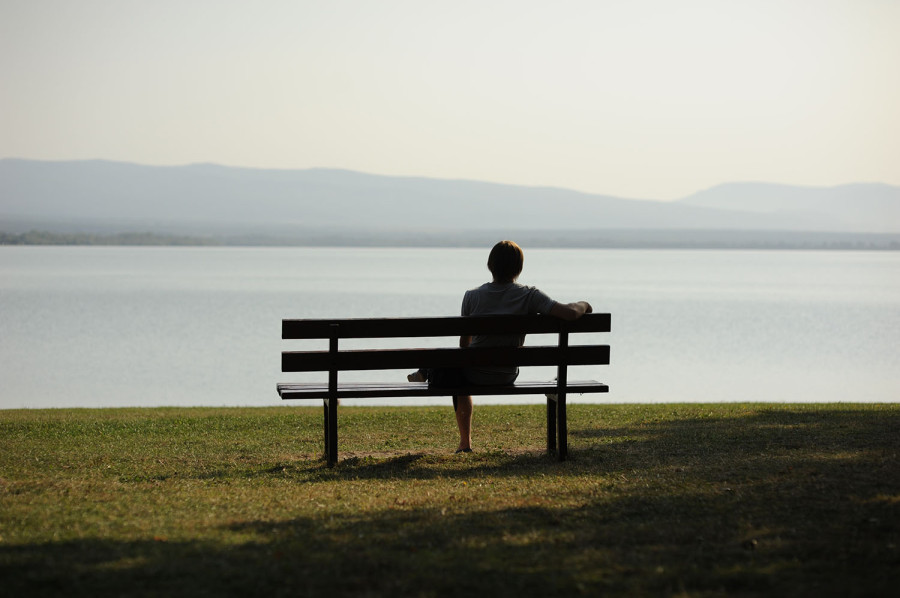Fiction Park
She left, but did she really?
I loved her like any recluse could love another, by keeping her all to myself—and when she drifted away, I became the bearer, witness, and consoler all at once.
Sarans Pandey
When I separated from the woman whom I in all likelihood would have married if we’d only been together for a couple of more months or so, the first person I considered talking to was my former landlady. A petite and extremely agile woman who no one would guess was approaching her sixties, except for when she’d pull her mobile phone close and squint when trying to locate the translator app every time she dropped by to offer me fruits or whatnot, she was among the very few who had seen me in a couple with the departed.
The impulse had no rational basis whatsoever because the landlady and I weren’t by any stretch of the imagination close, and especially absurd when considering how, despite spending a year and a half at her place, I never bothered to ask her name. But because I didn’t talk about the relationship with anyone else, there were only a handful of people under the sun, besides passing strangers on our travels, who had seen the two of us together and, as such, could potentially understand the significance of the event.
While my beloved at least had her close circle of friends and family with whom she shared pretty much everything, at times, much to my dismay, I never felt the impulse to bring the two of us up in my interactions with others. Such a tendency may be interpreted as a red flag by some, which is a fairly rational thing to do. Still, I hope that appropriate consideration of my character is undertaken before a verdict is passed, which, either way, I don’t really care about.
I loved her like any recluse could love another, by keeping her all to myself. However, it is that very approach that proved to be problematic later. You see, the impulse of wanting to converse with someone else, originated because of a very subtle difference in life before her arrival and the one after, even though both occasions invariably saw me living in a bubble of isolation.
What I failed to consider was that her lingering traces—I’m talking about those I can't simply pick up, like a postcard with her handwriting torn to shreds—are not physical but still appear sharply whenever I think about the most random things, such as crepes, eggs, desserts, or anything she pronounced with her peculiar accent. These traces continue so persistently that even silence no longer feels silent.
The same room that only responded to me with echoes of my footsteps or that of the random YouTube videos I would watch throughout the day, seemed to be harboring her secretly, which was such a naïve thing to be doing because how could such playfulness ever be contained and concealed, for subtlety was never her forte and nothing could keep her from expressing herself loudly.
And those inevitable and occasional glimpses escaped, which prompted me to converse with the ghost, repeating things that she said, and I found dear. Then on occasions, I would also hear my inner self asking, out of habit, “Qu’est ce que tu fais Anaïs. Tu fais quoi?” (What are you doing, Anaïs?) I guess that is the price one must pay for keeping someone entirely to oneself, that when they leave, one becomes the bearer, witness and the consoler all at once.
So I guess what I thought was that perhaps if I told someone outside of the room what had happened, then my room would no longer feel the burden to preserve her memory, to remind the recluse that there was someone who at some point loved him, like in those silly rom-com movies.
But what was I to say to the landlady? “Hey it’s been a long time. Just wanted to tell you that she and I are no longer together. Sending you this random message because I couldn’t find anyone else to share this with”.
In the end, I just decided to go for a stroll instead, which has been the
closest to what I can call a panacea, helping me overcome anything from the occasional gas problem to the frequent overthinking problem to the no thinking at all problem, whose co-existence with the former still takes me by surprise. And what I have come to appreciate about the park near my place, which is where I go for the stroll, is that it always tends to be crowded, and although I get the penchant for sometimes wanting to be alone, I have lately come to realise that proximity with strangers offers the opportunity of a very rewarding reflection.
As I walk around and take a moment to witness all that is going on—the older men and women doing taichi, the middle aged folks with their brisk steps or a light jog, the young kids running around trying to fish tadpoles or catch butterflies or whatever it is that I haven’t yet quite been able to figure out—with the ease that is going on, and realising that it shall always go on, the broader insignificance of the impediment burdening me becomes apparent. And the moment it becomes apparent, presumptions begin to falter.
Just as these strangers are oblivious to my experience, I too am oblivious to theirs, assuming, for instance, that the guy walking the fastest is doing so because he is fit and not because he’s just trying to outrun the thoughts that have been chasing him. Each person passing by carries with them their own musings, secrets they feel obliged to guard, if only because no one would understand even if they shared them, and as such, they are part of no cohort despite what appearances might suggest. So why do I consider the guy in the distance to be the crowd when in fact he might have just needed to take a walk? I pick up speed, overtake him, and do so by walking so close that I’m basically bumping into him. And yet he doesn’t show even the faintest of reactions.
Perhaps, contrary to my generalisation, he is the truly separate, having seen the crowd that existed before and will exist after, and yet deciding to walk among them, knowing full well that his essence, whether he be by himself or surrounded by people, will always be the same.
After taking a couple of rounds around the lake, I sat down on the bench overlooking both the lake and the pavilion, with my hands crossed, looking at nothing in particular but seeing all, including myself. The juxtaposition of the inner turmoil and outer calm seemed at once both confusing and liberating.
I took a deep sigh and asked myself, “Qu’est ce que je vais faire de moi?”, (What am I going to do with myself?), which put a smile on my face. No matter how convincing one may sound at times, especially to others, perhaps because only the other has the luxury to hear the words separate from the persistent efforts of the self to always revisit what has been said, as if they can be taken back, erased and then replaced with something more appropriate, the self seldom rests truly convinced. I felt myself getting worked up again. The thoughts that I had left behind were catching up. It was time to get up and start moving again.




 22.12°C Kathmandu
22.12°C Kathmandu










